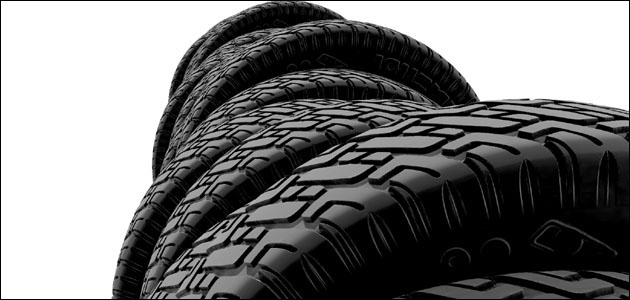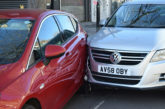
Up to two-thirds of garages have either considered or have been approached to dispose of old car and lorry tyres illegally, a leading British waste management company has found.
While there are perfectly legal ways of disposing of trade waste from the motor industry, many of the UK’s 55 million tyres which are disposed of every year go through unofficial channels with a substantial environmental cost, the Business Waste company says.
“While many companies in the motor trade are entirely law-abiding, there’s still a significant number who continue to flout the law,” says BusinessWaste.co.uk spokesperson Mark Hall.
According to a telephone poll of garage and tyre replacement businesses:
- 65% of traders say they’ve been asked to dispose of tyres illegally
- 31% they’ve given consideration to illegal disposal of tyres
- 12% say they’ve given old tyres to unregistered waste handlers
- 2% say they’ve fly-tipped old tyres or left them at a household waste centre
BusinessWaste.co.uk says the main factor which discourages garage traders from disposing of old tyres responsibly is a financial one. Spent tyres are heavy and bulky, and will therefore be a significant cost in any by-weight or by-volume waste management agreement.
“If a chap with a pick-up truck turns up and says he’ll take them off your hands for nothing, it’s obvious that some people will be tempted,” says Mark.
Tyres picked up in this manner are often sold to export brokers, where they are shipped to developing and emerging nations where they more than half are burned for fuel. These countries have less stringent waste and pollution controls, which means that while China gets cheap energy, it also blankets East Asia in thick smog and has global environmental impact.
“Just because they’re not being burned in our backyard doesn’t make it less of a problem for British businesses,” Mark adds. “It’s an illegal trade that hurts the planet, and hurts jobs in our waste management trade.”
Legal methods of disposing of unwanted tyres are cheaper than most companies realise, Business Waste says.
“It’s worth talking to your local waste management specialists to ask about alternatives,” says Mark. “There are often local schemes that will take tyres and put them to alternative uses.”
One such organisation is the Tyre Recovery Association, which encourages responsible retailers to join a tyre recovery process that recycles the old rubber into a number of high-demand products.
These include: children’s playgrounds, athletics tracks and sports pitches, carpet underlay, flooring, fuel for kilns where waste products are properly filtered. In some cases, technology has advance far enough for crumb from old tyres to be used as a building material and in quieter road surfaces.
“Don’t tire of recycling your tyres,” concludes Mark. “Do it legally and safely, and then you won’t find the wheels falling off your business.”









